Embracing Failure: Diaries of a DLP student
Student Profile: Lindsey Starnes Duch, ‘24 Doctor of Law and Policy
Lindsey Starnes Duch, ‘24 Doctoral Law & Policy student, is the Vice President of Health Policy and Innovation at ALG Senior, the ninth largest senior living operator in the United States. She was recently recognized as ‘Health Policy Leader of the Year’ by the Heart of Charlotte annual awards, an event hosted by Northeastern University and Tryon Medical Partners that recognizes individuals who make a positive impact on the Charlotte community.
The award acknowledged Starnes Duch’s work caring for the region’s senior citizen community during the pandemic. She was solely responsible for the research, implementation and execution of almost 600 COVID-19 vaccine clinics from 2021 through 2023.
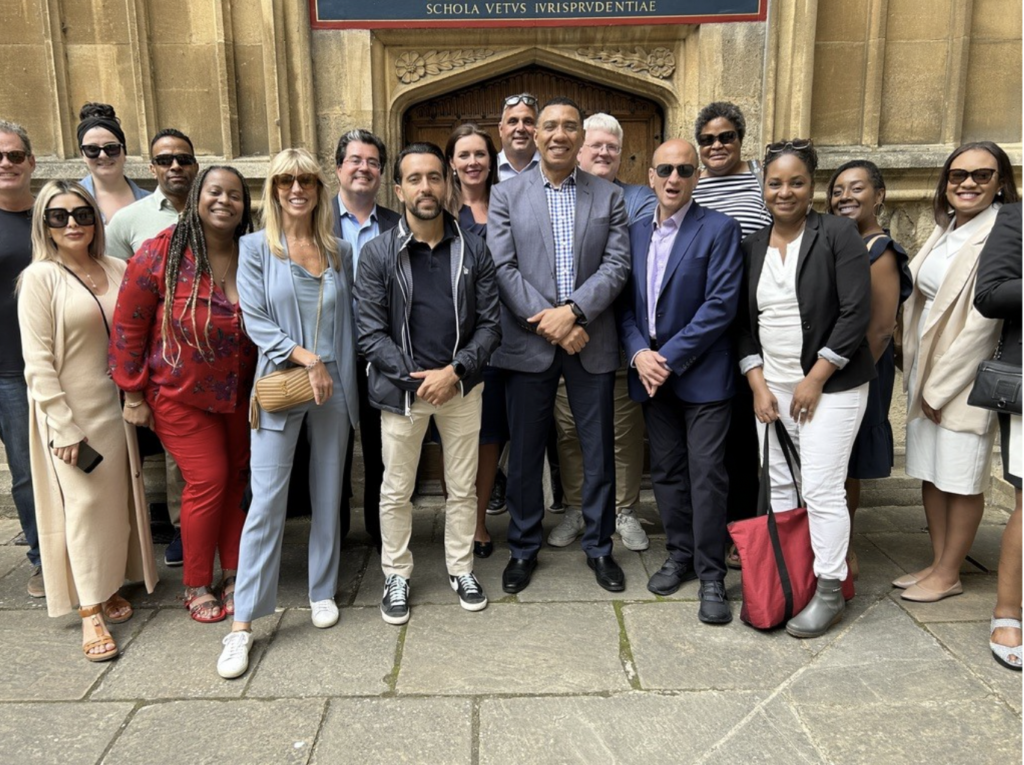
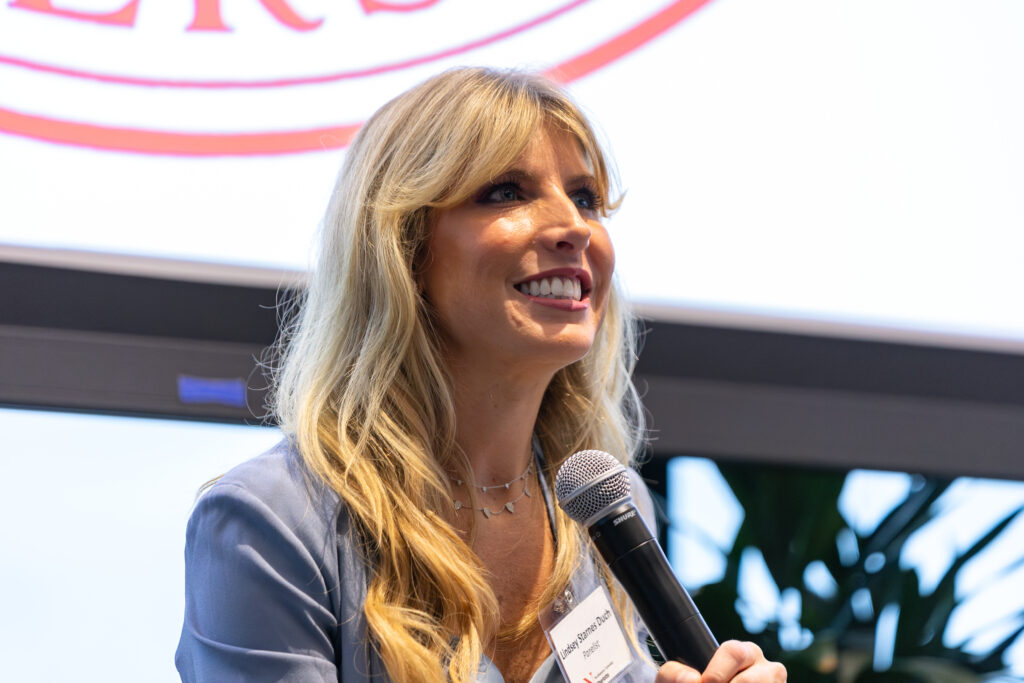
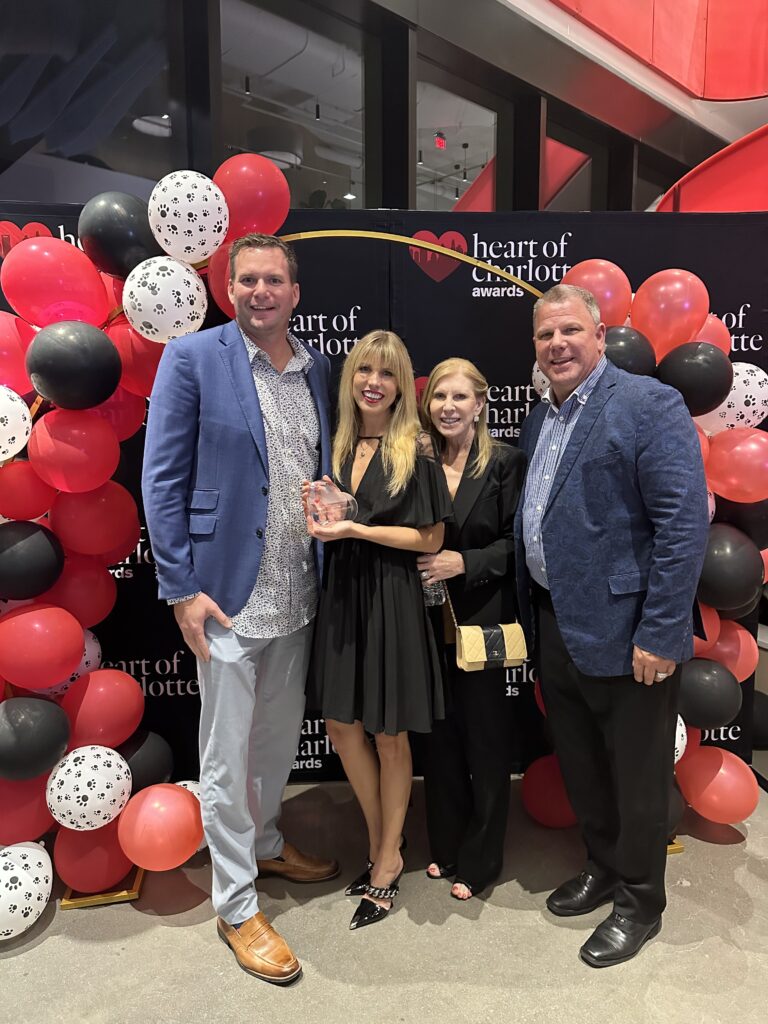
Her current role at ALG Senior includes working with lobbyists to help make shifts in state policy as it relates to senior citizens. Relevant issues that bring her to the state capitol include expanding Medicaid, resident reimbursement rates (the number of care hours awarded by that state to pay for residents’ care), and most recently, starting a Medicare Advantage plan for assisted living facilities, the first solely Individualized special needs medical plan for seniors with special needs.
“By definition, if you live in assisted living, you have special needs, but prior to this plan, you were just in a peer insurance-based Medicare plan. ALG Senior is not a provider partners insurance company for this plan. So, let’s say we have a woman who lives in a building and her doctor comes in and says she needs to go to the hospital; prior to 2024, she would have had to leave the facility to go to the hospital and we’d have lost control over her; we don’t know when they will release her or how long they will keep her. Then she gets sent to a skilled nursing facility just for IV management, and while she’s gone, she is exposed to illness/COVID-19 and we’ve caused her all this trauma from being removed from her familiar place until she may eventually not even come home. Now, because we’ve added two new layers of oversight, we can now look at that doctor and say, ‘we’ll do this all in the facility, we’ll give her treatment here, we’re not moving her.”
– Lindsey Starnes Duch
This work took seven years to get approval from U.S. Department of Insurance. Part of the team that spearheaded it underwrote proposals for the model and she is now the cog between a trifecta of physician groups, the insurance company, and the operations system, making it happen.
History & Mentorship
Starnes Duch was born and raised in Charlotte, NC. As a child, her father was an accountant with a demanding schedule. She remembers that, growing up, being together was important. She said, “My father traveled a lot, but when he was home, he was home.”
Starnes Duch grew up attending UNC-Charlotte basketball games with her family. In high school, she participated in dual enrollment, a program that provides opportunities to take college-level courses and earn credit toward future college degrees. She entered UNC Charlotte as a Sophomore. She said, “When I got to college, I realized that you can take as many hours as you want if someone approves it, so I took 21 hours each semester.”
Starnes Duch graduated with a double degree in History and English in just two years. With degrees coming from two separate programs, she found herself managing two different advisors, one in each department, adding an additional administrative element to her educational experience that she credits to her current competencies.
It was during college that Starnes Duch married young and had her first child at 20 years old. Nearing graduation, she knew she wanted to teach, so she became a high school teacher for six years.
Divorce from her first husband imposed the realization that a teaching salary was not going to be sufficient for a single mother providing for her children. She said, “I chose to get married early, and then I grew up. The divorce was scary, but it also allowed me to lean into who I am, who God made me to be instead of living with the choice I made at 18.”
Charlie Trefzger, ALG’s CEO, gave Starnes Duch an opportunity to work for him, albeit unknown to her father at the time, who was also the company’s CFO. She spent her first six weeks there learning her way around the company and attending every meeting she could find, whether it was HR, clinical meetings, or dietary planning meetings. Then she met with Trefzger and reported her findings, including areas for improvement. He told her to go and fix it. This experience awakened a deep interest in the field that led to Starnes Duch’s aspirations going from getting a paycheck to having a career. Caring for the elderly, she realized, was her calling.
Starnes Duch began the work by helping the marketing department get operational systems in place and she also streamlined vendor relationships until she found her home in the clinical department. Working with Dr. O’Neil, the CMO, Starnes Duch learned how complex the field of gerontology truly is. “I fell in love with taking ideas from our medical officer and making them realistic in this impossible environment that is assisted living.” she said. Shortly after, she went back to college, George Washington University (GW) this time, and obtained a master’s degree in gerontology.
“I didn’t really want to focus on gerontology; I wanted it to be a little more translative”
After completing her master’s degree, Trefzger encouraged her to prioritize her education even further. She started to shop programs and had a conversation with her advisor, Leonard H. Friedman from the Milken Institute School of Public Health, who told her that while she can pursue a second master’s degree, obtaining a PhD would deliver the professional gravitas she was after. This resonated with Starnes Duch, who began looking into doctoral programs that would fit her current life and existing obligations as a mother and full-time professional based in Charlotte.
She googled “doctorate programs for assisted living” and one of the first things that came up was the Northeastern University Doctor of Law and Policy program. She immediately thought, “this is the knowledge base Dr, Friedman was talking about, and I don’t have to move to Boston to accomplish this!”
In the thick of the pandemic, July 2022, Starnes Duch entered the Doctor of Law and Policy program. She also gave birth to her third child during her in the program. “You can be tired when you’re dead!”, she jokes.
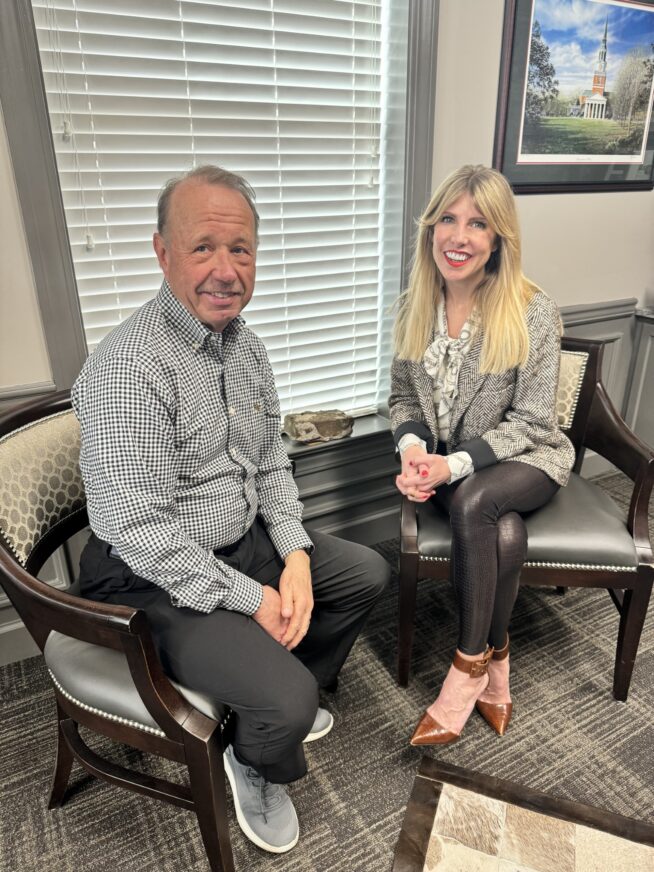
“Having such a strong mentor was the kingpin. The trust that my mentor Charlie puts in me and the expectations he has of me are equal. Without him, I wouldn’t be here; there would be no ‘Doctor’ in my title.” she said.
Merits of Failure
Starnes Duch doesn’t take the act of failing personally or professionally with negativity. She firmly believes that making a mistake is not a personal setback; It is more a byproduct of experimentation. “Innovation cannot happen without failure. You cannot get better if you don’t plug in something incorrectly. If you take it personally, it will set you back,” she said.
“In our industry, when you’re doing work that effects other peoples’ lives, there are some days you just need to postpone things that aren’t life or death for your own balance. It helps that I have a great support system at work and home. But I found out I can’t do it alone and it’s fine. And failing is also fine! Let’s fail faster so we can identify exactly what was wrong and let’s fix it. As a leader, showing your team that you fail too is powerful because it shows that you are taking chances, and if you never fail you won’t take chances and your team will never take chances,” powerful because it shows that you are taking chances, and if you never fail you won’t take chances and your team will never take chances,”
– Lindsey Starnes Duch
The DLP Program
Starnes Duch, whose experience with the program has been mostly virtual with occasional trips to the Boston campus, describes her experience as being supportive, adaptive and ‘pliable in nature’.
“Program leadership does a great job hearing feedback and saying, ‘We can’t change this immediately, but we can tell you how to accommodate going forward’. They are also extremely adaptive, which was an important attribute in the pandemic.” For example, in 2022, the program suffered a supply chain problem, causing a month-long delay in delivery of core textbooks. The solution that the program team came up with was to manually scan copies of entire books, hundreds of pages, and upload them for students to access. The program carried on.
The program requires all new students to have their first encounter with Northeastern University in person. This sets a personable precedent for the individual student to forge relationships not just with professors but with peers. “This absolutely set the tone for me. The cohort culture has been different for me because I am a traditionally independent learner. But I now realize that having a group of peers that intimately know the stress level you are going through, and who are going through it with you, is the key to success. In my very diverse cohort of 15 students located across the country, we have lost only one person to medical leave – we haven’t lost anyone else because they couldn’t do it or they felt alone or unsupported.”

“You still need to advocate for yourself; if you’re having problems with a professor interaction, you’re an adult and you have to get it resolved. If I don’t particularly love a professor’s personality, or how they deliver expectations, I don’t take it personally, I adjust my approach and focus on delivering to that because the goal is higher than my satisfaction in the process. If I or another student raises a concern, the program leaders are great at addressing that. Collectively, we have all kept our eye on the prize.”
Advice
Asking what advice she would impart to doctoral students, Starnes Duch says that they need to find a person or professor in the program they connect with ‘communication style wise’. She said, “If you have a personal connection, then bombard them with questions. Send them snippets of your writing, tell them what you’re thinking with analytics, and as soon as you’re assigned your board, keep using them because it will alleviate the stress.”
“Now that I’m almost done, I’d say if you’re starting the program, pick the research area you want your focus to be, but don’t limit yourself to what you think your research should be. You’re going to struggle against what your head is telling you to do and what your heart wants to research and you’re going to need your heart to finish. Be open to changing your intended path.”
“Your choices do define you but they don’t limit you. I’m still a mom, I’m still a past teacher, I have all those experiences but they didn’t limit me.”
The Meaning of Scholarship
Scholarship: – “A grant or payment made to support a student’s education, awarded on the basis of academic or other achievement.”
– “Academic study or achievement; learning of a high level.”
Sandy Slotnik, Northeastern CPS Alumna, resides in Miami. Her connection to Northeastern’s College of Professional Studies is generational. And now, she’s giving back.
Slotnik’s father, Charlie Kesselman, grew up in a working-class family that spoke mostly Yiddish, some Russian and little English. He was one of seven children, including a blind sister and another diagnosed with Multiple Sclerosis. At a young age, he felt compelled to help his family. Slotnik said, “I remember my father telling me that he wanted to get a college education to better himself and also to provide for the family, so he attended Northeastern University in the [19]20’s.”
After her father passed away, Slotnik discovered that he had continually donated to Northeastern University his whole life. “It probably wasn’t much because they weren’t wealthy, but he always gave back.” she said.

Her mother, Frances, was from a more privileged Jewish family. Frances was the only girl in a family of four children. Her brothers were given the opportunity to attend college, but because women were often discouraged to pursue academic achievement at that time, she wasn’t extended the same opportunity. Nevertheless, Frances was keen to establish herself and so she enrolled in secretarial school where she learned basic shorthand and typing skills.
While her mother worked as a secretary, her unrequited academic aspirations lingered and her reverence for higher education remained intact. She became active in the Women’s Scholarship Association, a progressive organization that raised money for women who wanted to go to college but could not afford it. Slotnik recalls, “My mother was passionate about that organization and active for a long time. Growing up with that, I always knew I would attend college. It’s amazing how deeply our lives are influenced consciously and unconsciously by our environment.”
Defining a Scholar
Scholarship, according to Slotnik, is about more than just giving money. It is an aspirational identity. “When I think of the word ‘scholar’ I think of someone who is educated and smart. I have always wanted to be well-educated, but I never thought I was smart enough. I had trouble reading and concentrating, and I always felt distracted.”
Slotnik’s own school days were complicated. Despite being equipped with both a strong work ethic and deep philanthropic passion passed on by her parents, her brain and its capacity to learn through traditional academic methods didn’t quite cooperate.
I knew I had this problem, but my parents didn’t fully recognize it. At some point in high school, I was given a timed SAT test – I had difficulty finishing anything on time – although I was getting good marks my senior year in high school I had difficulty with comprehension and I couldn’t retain information, so yes, I had trouble.
Despite her challenges, Slotnik graduated high school in 1957. Her sister went to Bennington College in Vermont and, she said, “I thought I was supposed to follow in her footsteps; she was beautiful, popular and smart, and I wasn’t any of these things. I knew that I had to make my own footprint but I wound up following my sister to Bennington. And that was where life changed for me a great deal.”
College was difficult for Slotnik. By December 1960, her senior year, the college said Slotnik wasn’t fulfilling capabilities and they asked her to take leave and see a doctor for some learning difficulties that a few of the professors had observed. “It might sound like I got kicked out, but it really was a turning point in my life. They basically gave me a second chance because they told me that if I took leave and took the time to look at my challenges to try to find a different approach, I could come back.” she said.
“I’m actually proud of it all. Diagnosing something like a learning disability in the early 1960’s is special.”
– Slotnik
It wasn’t until 1968 when the second edition of the Diagnostic and Statistical Manual of Mental Disorders (DSM), the handbook used by health care professionals in the U.S. and much of the world as an authoritative psychiatric diagnostic tool, was published that a disorder resembling Attention Deficit Hyperactive Disorder (ADHD) was recognized.
Unfortunately for Slotnik, she was right behind this curve. But because her professors at Bennington were avant-garde enough to recognize the difficulties she was having in class, she was able to take the necessary time to recalibrate. By her senior year, Bennington allowed Slotnik to return, and they assigned a counselor that she met with weekly. “The counselor was a sculptor, and he was so caring and supportive of whatever work I decided to do, he encouraged me and left a lasting impression to this day.”
Slotnik successfully graduated in 1962 with a bachelor of arts as an art major. After college, she returned to Brookline and took a few jobs but then decided she wanted to fulfil her childhood dream of becoming a teacher. That’s when Slotnik decided to go to Northeastern University’s night school (now the College of Professional Studies). Her parents said they wouldn’t pay for it, so she paid for it herself. “It was kind of a blur but I did it. I worked by day, lived at home and studied at night. I couldn’t afford an apartment doing everything else. It was hard.”
Around this same time, Slotnik met Joe, her now husband of 60 years. She said, “As a woman, I was a victim of my generation. So, when I knew I was going to get married, I said ‘I don’t need this graduate education anymore, I’ve got a guy.’ But my husband looked at me and said, ‘you’re going to finish that course and take that final exam!’ And I did. He encouraged me to be myself.” she said. While she didn’t complete her graduate degree straight away, pausing when she had her first child, she returned to Northeastern University in the 70s after about a ten-year hiatus.
“This is another thing I respect about Northeastern University – they were willing to take me back and accept all of my credits.” she said. Slotnik earned her graduate degree from Northeastern School of Education in 1973.
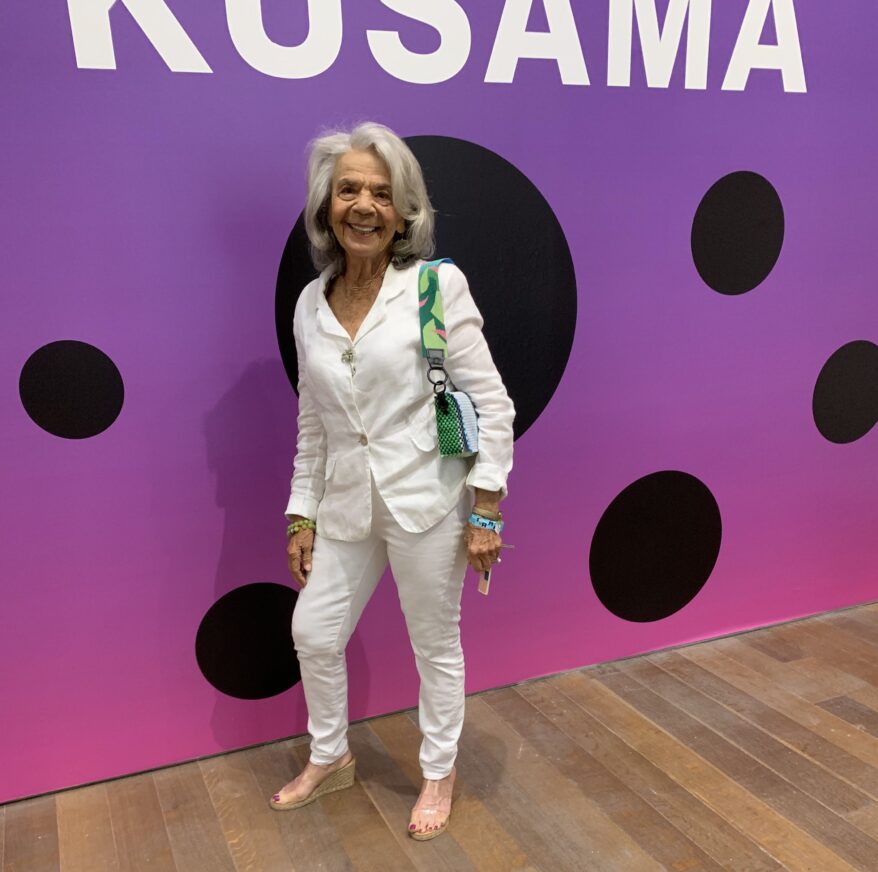
“I remember so vividly, I took a streetcar to the graduation ceremony, and when they gave me that diploma, they not only congratulated me, they spoke to me as an individual. The dean at the podium said ‘You’ve done great, come back and do a doctorate.”
That recognition and encouragement gave Slotnik a sense of confidence and made her feel capable of doing more, and that feeling stayed with her. She said, “That’s something I’ve noted about Northeastern all around. While I’m over here thinking I’m just ordinary, they are recognizing the unique parts of me and helping me see my best self! I got the message loud and clear: You can have setbacks but you can also move forward. Eventually.”
Slotnik then started to volunteer in the public schools, and one day the principal of the local public school said that the art teacher dropped out and asked if she could teach. “I was petrified but I grabbed the opportunity.”
Slotnik enjoyed her time as an Art teacher during the 70’s, and 80’s. Eventually, she moved on to help in the math department. As her own kids grew older, and her husband’s career took a different turn, they thought about trying something different. Her husband suggested they move to Florida. When the couple relocated, Slotnik initially commuted back and forth to Massachusetts to continue to work as a teacher. Shortly after settling in their new home, she became involved in volunteering for local art museums. The teaching gig faded and Slotnik enjoyed the next years building deep relationships and doing volunteer work with art museums in Florida. The museum was affiliated with Florida International University, a state university that focuses on providing opportunities to underserved applicants.
Reconnecting with Northeastern
Now equipped to actualize her life and continue to contribute to her community, Slotnik’s Northeastern experience seemed to fall in the rearview. Then in 2021, Slotnik’s daughter, Julie, scouted the Northeastern University campus with her teenage children. Knowing that her mother was an alumn, she left Slotnik’s contact details at the admissions department. Tara Esfahanian, CPS Director of Development, reached out and that’s when Slotnik joined the CPS Scholarship Committee, a committee that reviews applications for scholarships on behalf of the college. The Committee reads applications of underserved candidates who apply for help in their studies and makes funding recommendations.
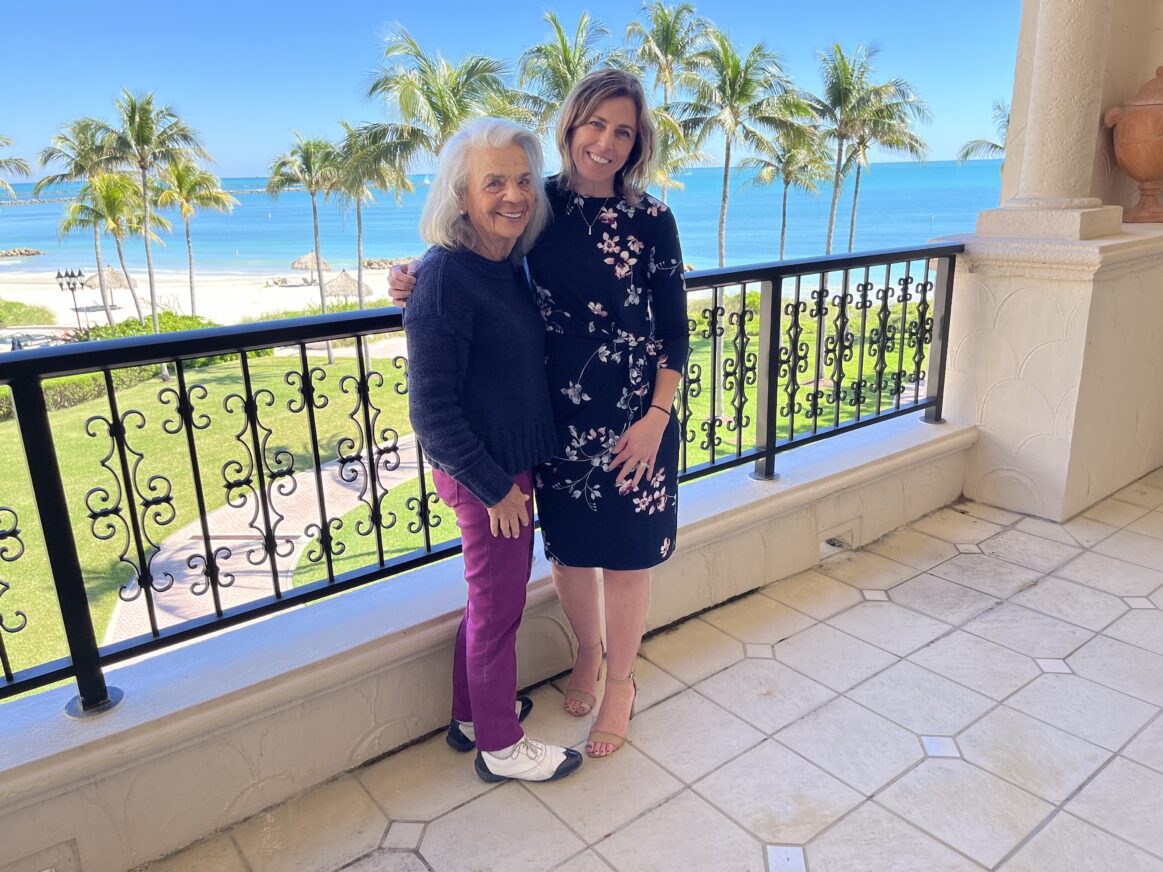
“Tara and I wound up connecting in Miami on a visit in January 2022. I invited her over and we chatted. We had lunch and she was fabulous. I was so honored and privileged that she even asked me to be part of the committee.”
Sandy’s own educational journey at Bennington and Northeastern, offers a familiarity with the non-linearity of many individual learning paths at CPS. Esfahanian, recognizing that this understanding is critical when evaluating scholarship candidates who may have faced challenges or disruptions in their own education, led her to believe that Slotnik was a perfect fit.
Esfahanian said, “I quickly knew that she would be a welcomed addition to the CPS Undergraduate Scholarship Committee. Sandy approaches the work on the committee with an understanding of selecting scholarship recipients who not only demonstrate academic excellence but also embody the resilience and determination needed to navigate life’s twists and turns. She has a spark for life and a passion for helping others, and she’s been there herself. Her vibrant personality, grit, passion, and drive are all traits that resonate in so many of our current CPS Students.”
“This all takes me back to my father. Reading these applications, how he fought for what he needed to do to take care of his family. They’re not just young, the applicants are like I was, they might have children, they are working and providing for their family, and they have a goal to make things better. And they don’t take things for granted.”
One of Slotnik’s grandchildren is a Junior in high school. “He’s looking at a lot of colleges and he told me he liked Northeastern University the best – he knew nothing about my or my father’s history there. Maybe he likes it for the same reasons that attracted my father and myself.”
Ultimately, Slotnik and her husband have decided to put their own money behind the scholarship initiative.
“I have many luxuries in my life and I do want to give back. That’s the message that I’ve learned. I have been fortunate that I have been given something from my education and it’s a privilege. I have been privileged.”
Slotnik, who turns 85 this year, was the first person in her family to go to graduate school. “I did make my own mark, my own footprint. We all have memories, and we all have dreams, and one of my dreams is to develop a scholarship for students at Northeastern. Throughout my life I have seen that its important for people to have things that other people can’t take away; like education. I want to give something to someone that nobody else can take from them. It also means that I still have a dream, a dream to give back.”
Create the Future of Learning as a Learning Experience Designer
Join us and meet faculty, students, and alumni to learn more about the Northeastern LXDT program and what it takes to enter and excel in learning design.
We will discuss how our programs allow you to apply what you learn immediately through ongoing experiential opportunities.
Excel as a Leader in Higher Education
Ready to elevate your career, amplify your impact, and transform the future of higher education?
Learn about our master’s and certificate programs in higher education administration. We will discuss our experience-based learning model, and recent alumni will share how they gained in-demand skills to power their professional trajectory.
Teaching Today in K12 Schools
Discover the exciting teaching and learning happening in K12 schools today and how you can start your teaching career or expand your skills in our MAT and MEd programs.
Elevate Your Future: Discover Northeastern University’s Graduate School of Education Master’s Programs
Unlock the doors to your academic and professional potential by joining us for a discussion that will introduce you to our range of master’s and certificate programs.
Sara Ewell named Chair of the Delegates Council for Carnegie Project on the Education Doctorate
Sara Ewell, Associate Dean of Faculty Affairs, began her role as Chair of the Delegates Council for the Carnegie Project on the Education Doctorate (CPED) last month. This prestigious leadership position speaks to Sara’s commitment to advancing scholar-practitioner research with real-world impact for the EdD program – not only at Northeastern but around the country and the world.
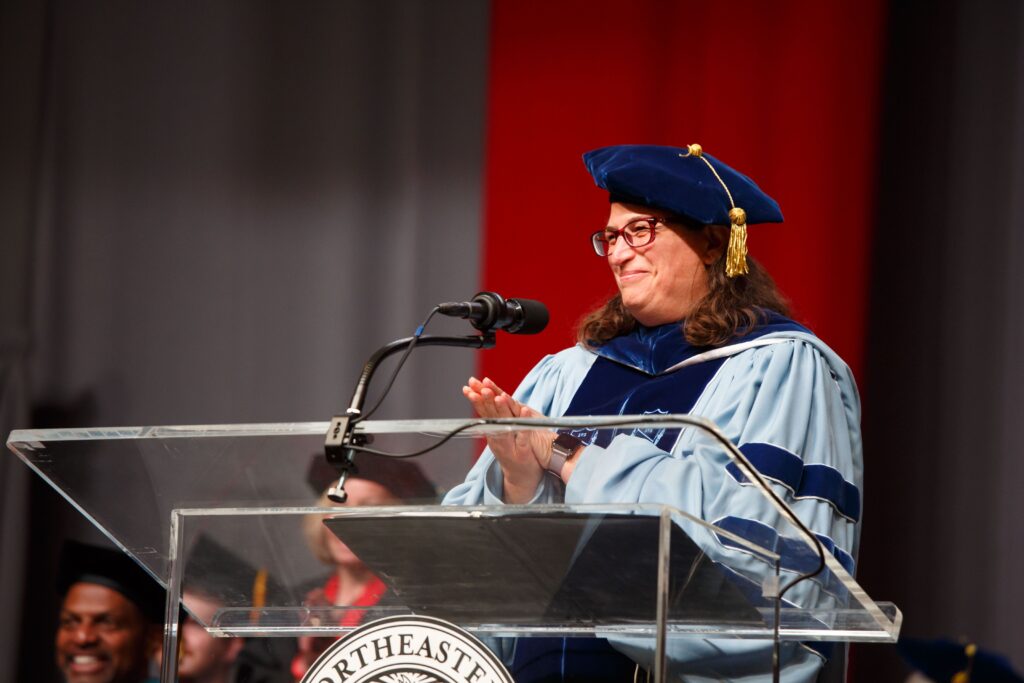
CPED is an international network of 135+ schools of education leading the charge to transform the Education Doctorate. According to its website:
Members are committed to rethinking advanced educational preparation through improved EdD program designs that offer academic rigor, practical impact, applied research, and value. CPED, the first action-oriented effort working to distinguish the EdD from the PhD, defines the EdD as one that prepares educators to become Scholarly Practitioners who can apply appropriate and specific practices, generate new knowledge, and steward the profession.
Elected as the Delegate Chair-Elect for CPED in Fall 2022, Sara’s tenure as the chair started in January 2024. In this role, Sara will also serve on the Board of Directors for CPED from January 2024 to December 2025.
More information:
- https://www.cpedinitiative.org/deans-delegates-council
- https://www.onlineeddprograms.com/leadership-interviews/dr-sara-ewell
GSE faculty publish a two-volume book sharing the national impact of “action research”
When students graduate with their EdD at Northeastern’s College of Professional Studies, they have already made an impact. That’s because the EdD program is centered on principles of “action research” and the dissertations involve comprehensive research, as well as thoughtful implementation.
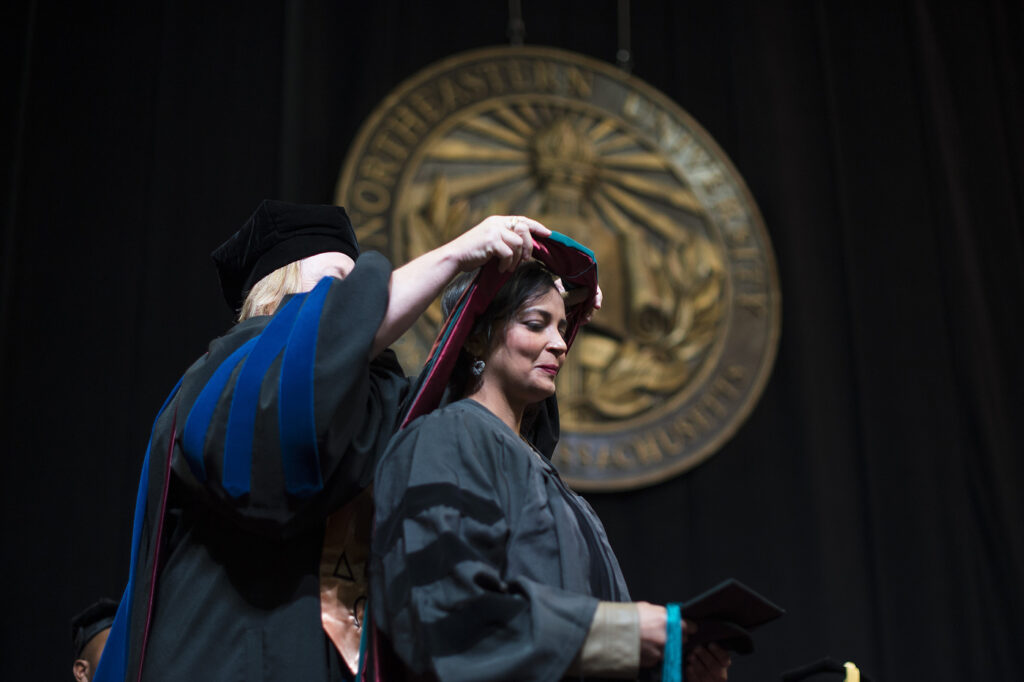
Sara Ewell, Joe McNabb, and Joan Giblin collaborated on a comprehensive overview of national research led by EdD students around the country. This two-volume book highlights the work of graduate students whose EdD programs share Northeastern’s partnership with the Carnegie Project on the Education Doctorate (CPED) – an international organization dedicated to transforming the Education Doctorate into the Professional Practice Doctorate in Education.
According to its website:
“Members are committed to rethinking advanced educational preparation through improved EdD program designs that offer academic rigor, practical impact, applied research, and value. CPED, the first action-oriented effort working to distinguish the EdD from the PhD, defines the EdD as one that prepares educators to become Scholarly Practitioners who can apply appropriate and specific practices, generate new knowledge, and steward the profession.”
The books are available at Information Age Publishing: https://www.infoagepub.com/authors/joe-mcnabb
We sat down with one of the collaborators, professor of practice and full-time faculty member, Joe McNabb, to learn more about the importance of this work and the value of Northeastern’s EdD program.
Q: What is “action research”
Action research is really at the heart of how we establish the EdD as an advanced professional degree — such as a Doctor of Nursing Practice (DNP) or Doctor of Psychology (PsyD) — versus a PhD which is more of an academic research degree. It moves away from traditional research by taking the step beyond just making recommendations, to actually implementing change based on rigorous research findings. For EdD students, when they graduate with their doctorate, they are armed not only with a degree but with a story of how their research resulted in meaningful change with significant impact.
Q: Why is this approach to “action research” so important?
Action research can empower all administrators in higher education to engage more effectively in resolving challenges in colleges and universities.
The first volume of the work we published, Faculty Development: Achieving Change Through Action Research, presents a compelling collection of chapters that explore faculty development through the lens of action research, tackling a diverse array of challenges with innovative solutions. Chapters include Cragg’s investigation into the barriers preventing faculty from implementing digital formative assessments in a top-tier business school highlights crucial issues of self-efficacy and time. Brewer’s examination of developmental English courses offers insightful structural and pedagogical strategies to enhance student success.
The second volume, Taking Action: Creating Sustainable Change in Student Affairs is an insightful compilation that utilizes action research to tackle complex issues in student development and support. Through a series of chapters, the volume delves into various facets of student life and administration, offering valuable findings and recommendations such as Tresselor-Gelok’s exploration of leadership styles in student affairs and Bevins’ work that highlights the benefits of peer-mentoring for first-generation students’ financial resource access.
Q: How did you decide what students to include in the book?
We did an open call for book chapters and reviewed all the proposals. Those that we kept were those that really demonstrated the impact of action research. We looked for highly rigorous research as well as measurable impact. The call was answered by universities across the country who are part of the CPED network, and the results were truly moving.
Q: Why did CPS decide to join the CPED network?
Sara Ewell was the vision for moving in this direction. We wanted our students to do something with their degree instead of just getting a piece of paper. She really created this vision in 2017 and 2018. We introduced the program in Fall 2018 — pivoting away from the traditional model so our students can take away high-impact skills.
This is even more meaningful when you consider the mean age of our students is 43. Most are mid-career professionals who are looking for ways to not only advance their careers, in higher ed, K-12, or non-profit spheres but make an impact. We have students from all over the country, representing community colleges, private liberal arts colleges, specialized colleges in fashion and design, prestigious global research universities, and Ivy League and public research universities. It really is a broad and diverse network of seasoned professionals generating remarkable work.
Progress never ages: Award-winning EdD student shines new light on ways to dismantle barriers to higher education
When Mark Scheinbaum receives his doctoral hood at the College of Professional Studies’ graduation ceremony this May, he may just be the oldest EdD graduate in the college. 76 years young, Mark has been in pursuit of his doctoral degree off and on for much of his life. It was in part because of the challenges he faced as a first-generation student, balancing the demands of life and family with his educational aspirations, that his doctoral thesis centered on access to higher ed. Specifically, for those who have been historically marginalized.

The result of that research culminated in a documentary video that has subsequently been recognized by several national and international film competitions, most recently winning the Prague International Film Festival for the Best Student Film.
According to Mark, one of the most salient takeaways from his research demonstrated the need to stop minimizing the nuance of individual needs such as intersectionality, language, physical limitations, and financial challenges, and start to listen to the stories that encompass a patchwork of multiple barriers.
This is particularly true in today’s political climate, Mark added, where programs such as affirmative action or DEI initiatives are increasingly under fire.
A resident of Florida, Mark notes that in his home state the misperception around programs such as these center on a wildly incorrect assumption that they represent some kind of “free ticket” at the expense of others.
While some of these programs may open doors to access what may have previously been out of reach for some prospective students, these programs are not a panacea for systemic barriers, It’s so important that people have a much more nuanced understanding of how difficult it is for so many to not just get into school, but finish with a degree.
Mark Scheinbaum
In all of the interviews he conducted with six first-generation students at institutions across different parts of the country, he found that the motivation and inspiration that got them all over the finish line was their ability to dig deep to find motivation, make connections, and build relationships with people who could be a resource for the incredible financial, logistical, and mental load of education while working and caring for a family.
Sitting down with Mark, he shared why this research was so important to him and what he hopes institutions like Northeastern and others will learn from it.
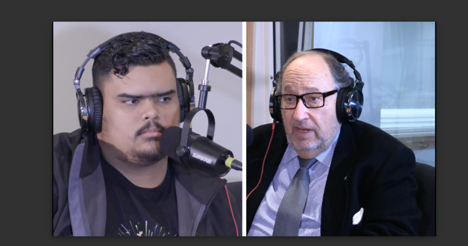
What inspired you to research first-gen students from historically marginalized communities?
I was inspired by the strength and dedication of my fellow first-generation students.
Growing up in New York at a time when first-generation students such as myself often received free tuition at the City University of New York (CUNY) has always inspired me to be a proactive advocate of fighting educational barriers for underserved students. But the monumental shift that took place during the pandemic where we transitioned to online classes was the catalyst for re-focusing my doctoral research in this realm.
Overwhelmingly, my school is first-generation – reportedly the highest percentage in the United States. We were able to craft online study groups, and live video final presentations, and when family and health issues emerged (we had several students whose family members died during the pandemic), we had cohorts do “live intros” to pre-recorded videos or PowerPoint presentations. The bottom line is that the creation of a “pass/fail/incomplete” option by the provost created a demonstrable increase in collaborative efforts, substantive caucus performance, and “fun” with lasting collegial relationships created because every weekly activity was not producing questions of, “What is my grade?” First-generation and international students who are often the only members of their household to graduate from high school, and who feel pressured to “show me your report card,” or answer the question “Why did you only get a ‘B’?” were submitting work products that were superior to the face-to-face class, and certainly, other courses where the instructor would “teach to the test.”
Thus, if the worst pandemic in 102 years could enable first-generation students from a broadly self-identified group of Historically Marginalized Communities (HMCs) to move closer to their bachelor’s degrees, and become motivated to fulfill post-graduate and professional school desires, why not deeply examine the literature and research existing or (sadly) lacking in this investigation?
What most surprised you about this research?
I was most surprised by the six amazing interviewees who recounted—in very specific detail—how self-motivation, superior academic achievement, and myriad variables ultimately motivated them to apply to graduate school. While debate rages about the “fairness” of programs such as affirmative action or DEI, none of these represent any kind of “free ticket” to success. I was really impressed by just how critical it is to examine the intersectionality of language, physical limitations, and financial challenges, and really listen to the complex stories of multiple barriers faced by first-gen students.
What major thing do you think needs to change to make access to higher ed more equitable for all learners?
Top administrators, especially at the graduate and professional level, need to enhance and enrich DEI training, not eliminate the discipline (as in Florida), and actively build bridges with undergraduate programs in Historically Marginalized Community (HMC) recruiting.
Deeper training for advisers and mentors, counselors, graduate school recruiters, and paid and unpaid graduate school marketers organizing “career fairs” or workshops needs to include the broadest definitions of self-identified HMC members. For example, the Nicaraguan woman coming to the United States because her sexual orientation endangered her in her home country; settling in a Brazilian neighborhood in Miami where she had to perfect Portuguese before achieving fluency in English; diagnosed with cancer and unable to afford any health insurance, and attempting to find funds for transportation to dialysis for her mom three days a week, is not defined by a “category.” Graduate and professional schools stereotyping Latinx undergraduates, for example, as best suited for nursing, social work, counseling, dietary and nutritional specialties, no matter what the student’s actual passions for engineering, medicine, or architecture might be, play into historical and systemic barriers, that are the essence of the much-maligned subject of critical race theory.
Anything else you’d like to add?
As an older student, there were moments when financial and family responsibilities, mounting student loans, and an entire summer term missed because of eye surgery, brought me close to quitting. My chair, my GSERA colleagues, and an unexpectedly generous grant from the savior of the entire project: Dr.Karl Reid, and his NU Office of Diversity, Equity, and Inclusion, allowed me to assemble the professional production and post-production talent needed to complete my doctoral research.
I am so grateful for the support I received and am invested in identifying ways that I can take what I have learned to reduce the burden and barriers for graduate education for more HMC members.
Transforming the future of education through a social justice lens.
Faculty in CPS’s EdD program prioritized compassion and connection in advancing curriculum development and research in a variety of education settings. As a result, 92% of graduating EdD students actively participated in change initiatives focused on social justice.
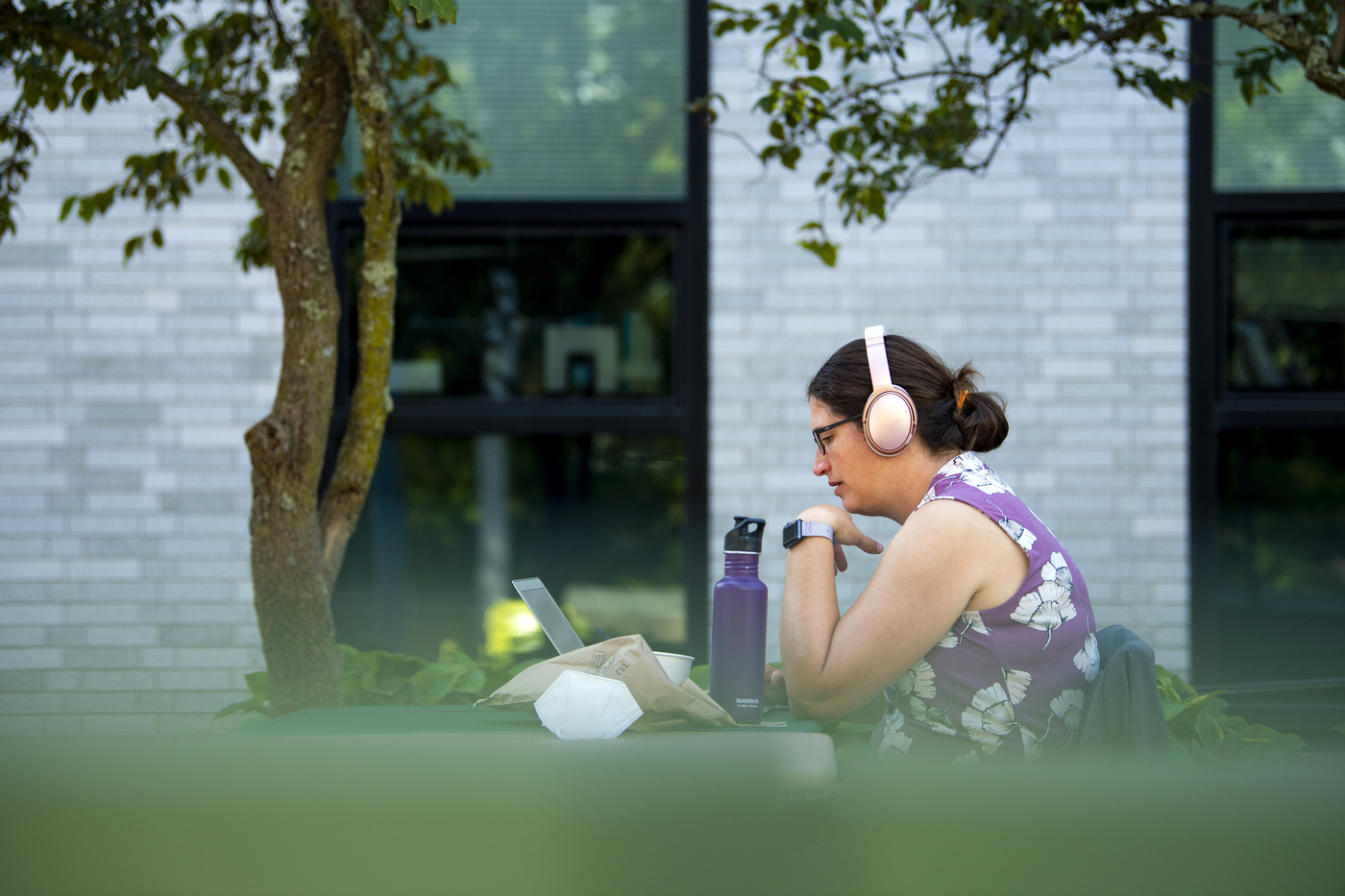
Learn more in this recently published paper “Developing and Sustaining Northeastern’s EdD Program During and Post Pandemic” in Impacting Education.
Journal on Transforming Professional Practice:
https://impactinged.pitt.edu/ojs/ImpactingEd/article/view/409/421